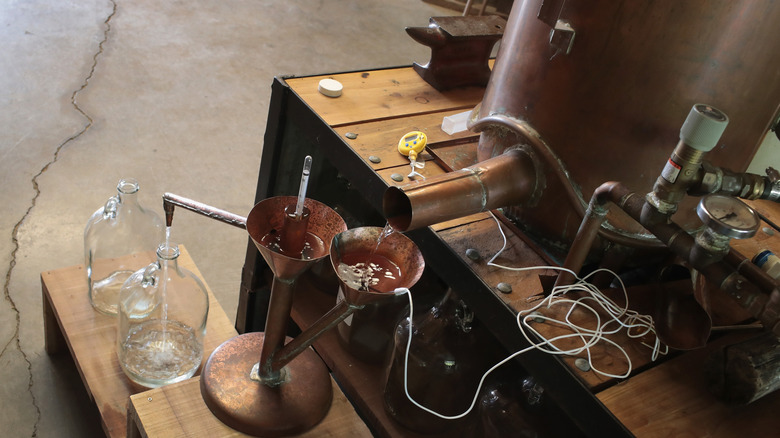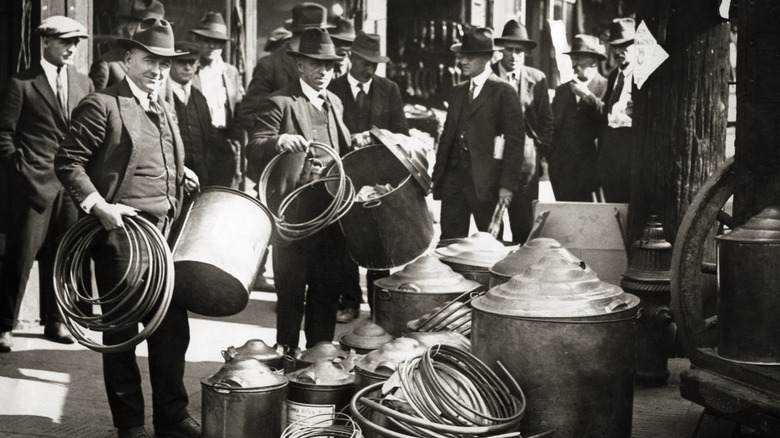What Type Of Alcohol Is Moonshine, Exactly?
You've heard the name; you may have even tried some, but what exactly is moonshine? Most simply, moonshine is a clear, unaged whiskey, or "white whiskey." Whiskey is any alcohol distilled from grain but is usually made from corn, barley, or rye. The most basic recipe for moonshine is grain plus some type of sugar, water, and yeast. The yeast ferments the sugars to create alcohol, and then this "mash" is distilled to create whiskey. Traditionally, moonshine is made from mostly corn with other grains (or refined sugars) added for flavor or higher sugar content, which, ultimately, ups the percentage of alcohol. The more sugar in your mash, the more alcohol it will produce.
Generally, moonshine has a high alcohol content — 75% alcohol (150 proof) or higher — and is completely transparent because it isn't aged in barrels, as are most commercial whiskeys. Due to the high alcohol content and lack of aging (which mellows the flavor), moonshine typically tastes very strong. That's why it's often called "white lightning" — and if you use it in something like blueberry moonshine popsicles, just a tempered hand. The high alcohol content will make it difficult for your pops to freeze.
The history of moonshine
Although there are now many commercial moonshine brands available, when we talk about moonshine, we're usually talking about whiskey distilled illegally across the United States. The term moonshine came to mean illicit alcohol in the late 1700s — specifically liquor that was created and transported at night, under the "shine of the moon." Moonshiners distilled their liquor to make a profit while side-stepping government regulations and taxes. Moonshine production boomed in the United States during Prohibition when the production, consumption, and sale of alcohol were illegal for anything other than scientific and industrial use (though you could also get a prescription for liquor during Prohibition).
Why is moonshine considered dangerous? These days, liquor production is still regulated because, when not produced correctly, it can have deleterious effects. Properly distilled liquor creates ethanol, a compound that, while harmful in large quantities, is labeled by the FDA as Generally Recognized as Safe (GRAS). You may have heard of terms like "rotgut whiskey" or "antifreeze" for bad liquor. If the first distillation is not poured off, or the mash isn't distilled at the proper temperature, moonshine can produce methanol, which is highly toxic.
When you're buying your white whiskey at the store these days, however, you can be sure that it's made under proper regulation and just as safe as any aged whiskey. Want to enhance your cocktail game? Substitute any moonshine in any cocktail that features whiskey — like a bourbon sour or the fourth down whiskey cocktail.


